Fall
“Black Mirror: Dystopian Horrors and the Device Paradigm”
By Maria Martinovic
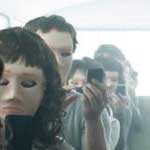
Charlie Brooker’s Black Mirror is a provocative case study for examining contemporary dystopian views of the social roles and values of modern technologies. While various readings of Black Mirror emphasize its episodes as depicting dark and satirical reflections of cultural unease, my argument complicates this view and suggests that protagonists in Black Mirror instead reflect the seductive force of techno-utopianism, hoping that technology can provide a technical fix to their deepest vulnerabilities. I draw on Albert Borgmann’s philosophical writings on technology, particularly his notion of the device paradigm, as a framework for understanding the intimate relationship of technology to human life and its masking of matters of ultimate concern. But rather than technology’s masking matters of ultimate concern, I argue that Black Mirror portrays technology as twisting human potentialities for love and justice into cruel and horrifying ends. This lethal combination of human susceptibility and technology’s power is the heart of the dystopian vision of Black Mirror and cannot be solely addressed by Borgmann’s belief that socially embedded focal practices can ease the alienation caused by modern technology.
“Homecoming and Exile in Language: A Response to Heidegger, Arendt, Derrida and Glissant”
By Khun Min Ohn
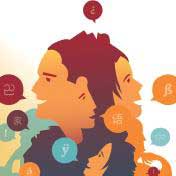
In our everyday lives, we use language as a tool for communication. Yet, for the twentieth century philosopher, Martin Heidegger, language is not merely a tool but something that is central to our existence, giving us a sense of belonging and homecoming. Heidegger thus reminds us of the importance of the intimacy of our relation to language. However, in tying this feeling of homecoming to the mother tongue and, with this, to a sense of rootedness in a particular language, culture, and history, Heidegger fails to account for more global and multilingual experiences of language. In this thesis, I turn to Hannah Arendt, Jacques Derrida, and Eduoard Glissant, who draw on their own experiences of language in the context of exile, colonization, and exclusion to challenge Heidegger’s conception of the mother tongue. I then turn to my own of experience of having three languages—Chinese, Burmese, and English—to develop a model that advances this discourse even further, opening up the possibility for a plurality of intimacies and homecomings in multiple languages.
“Love Hurts, but that’s the Point: Conceptualizing Romantic Relationships Through the Filmic Lens”
By Augusta Pendergast

This paper problematizes our current conceptions of romantic love as seen through several different films and philosophical lenses. Through analyzing three films by the director Baz Lurhmann, I discuss the Platonic, neo-Platonic, and Christian elements of love that permeate popular culture. I then move on to discuss the meaning of love through the philosophical lenses of Jacques Lacan and Mari Ruti, further illuminating the narcissistic tendencies that can seep into romantic relationships. The thesis ends with a new conception of love that highlights the importance of having the courage to abide with one’s partner through moments of their brokenness and recognizing their complete otherness. Respecting the vast difference between oneself and one’s lover enables a practice in empathy that enriches our understanding of others in general and allows significance to enter into our lives.
“The Public/Private Distinction: Transgression, Aesthetics, and the Trans- Movement”
By Daniel Shussett

This paper examines the oppressive nature of the public/private divide, seeking to clarify the distinction in hope of making it politically positive. Ranciere shows the divide to be ambiguous, arbitrary, and a doubling of oppressive forces, while Foucault shows the oppressive nature of the distinction to manifest differently in each case. The two thinkers agree on the distinction’s development but conflict on questions of political agency in light of the divide. This paper argues that aesthetics may serve as common ground regarding agency and points to an instance where the divide might be challenged both theoretically and practically.
“Cognitive Automation: A New Ethos for the Liberation from Work”
By Colin Yandam

Today’s new wave of cognitive automation, springing into life at the intersection of software and robotics, has unprecedented potentialities. Whether such a technological revolution will help foster a new era in which humans are ultimately freed from labor and the economic imperative, or whether it will become an instrument for further exploitation, reposes upon the collective fashioning of a new ethos moving away from economically shaped identities toward free self-shaping ones. This thesis defends a twofold postulate. I first argue, using a dialectical materialist lens, that increasing cognitive automation within a capitalist ethos is bound to create greater inequality and a useless class. The capitalistic ethos, by stripping any supposed worthiness away from this redundant workforce, consequently becomes an untenable set of social values and norms. I subsequently argue that a new set of human values need to be crafted, which ought to accord with the newly attained freedom from the economic imperative. Such new set of values should redirect human focus toward creative self-fashioning, the encouragement of active participation within the political and communal life, and most importantly, the ascension of consciousness through continued self-overcoming, self-mastery and the search of knowledge and truth.
“Facilitating Macro-Reconciliation: Memory as a Translating Mechanism Between Experience and Narrative Post-Mass Trauma”
By Emma Stejbach

This paper examines the relationship between collective memory and macro-reconciliation in nations post-mass trauma. I first identify the nature of collective memory, situating it along the continuum of personal experience and history, and then describe the various levels of degradation the collective memory suffers when a population experiences mass trauma, spurring “fractured collectives”. The question of reconciliation and remembrance is then answered through the use of the collective memory, one that often involves correcting the narrative of History. There are many implications in utilizing collective memory as a critical site of potential reconciliation; at best, it serves to facilitate reconciliation, both of past and present matters, and at worst, it serves as a vehicle of exploitation and violence. To address this wide and varying continuum of consequences, I posit that memory should be utilized as a translating mechanism between lived experience and historical narrative in order to facilitate macro-reconciliation. I additionally utilize the Gacaca courts in post-genocidal Rwanda as a case study to demonstrate the necessity of proper collective memory translation, free of distorting and dangerous historical narratives composed by the state.
Spring
“Narratives and Conflict: Reimagining Humanism in a Global and Multicultural World”
By Cheick Dicko

Conflict is an enduring human problem that raises the question of whether we can hope for a peaceful global community. These conflicts are caused by the distinct and often incompatible narratives that bind communities together. Terms that we regularly use such as nation, culture, and language, have been the focal points for many conflicts. When discussing conflict, we try to find ways to live together, focusing on difference, but I argue that it is time to begin shifting our emphasis to what we share in common. In a world that is only becoming more global and interconnected, we need to imagine a new narrative of humanism that forces us to see the humanity of others despite our perceived differences. This new conception of humanism provides an important frame for opening new paths to thinking about world peace.
“Getting by with a Little Help from My Friends: Friendship and the Self”
By Natasha Kerr

Friendship is a special kind of relationship that has been valued since Aristotle. My account of friendship differs from Aristotle’s in its focus on the quality of the relationship between the two people rather than being tied to the virtues of each individual. Resting on a definition of genuine friendship as mutually other-motivated rather than self-motivated, my interest in this paper is the effect of friendship on the self and the alleged goods it bears to human life and development. Through exploration of dimensions, qualities, the course, and nature of friendship, I conclude that friendship is essential to proper development of self and a necessary component to a flourishing life.
Getting There With Neutrality: A Mediation Inquiry
By Rachel Loughran
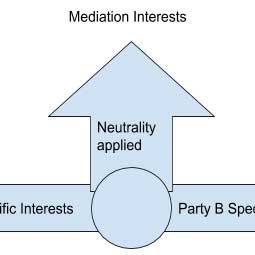
Alternative dispute Resolution (ADR) is a field growing in importance because of its role in resolving conflicts-- ranging from countries at war, to a neighbor’s barking dog. Of the processes in ADR, mediation is often employed for organizational and individual conflicts. These mediations are taken on by a trained mediator-- sometimes known as a neutral, who assists the parties to work toward a solution that they can agree to. This is often easier said than done, as parties can feel hopeless in ever finding resolution. Neutrality is seen as a central part of these mediations-- so much so, that practitioners are referred to as such.
But, how can neutrality, which appears to be the absence of something-- that thing being direction-- provide direction toward solution? By itself, neutrality may seem like it has nothing to do with direction at all-- but, when it is applied to drive behavior in mediation, it drives parties in conflict toward resolution. Applied neutrality is what drives a mediator from merely listening to parties talk about conflict, to action to assist them towards resolution. Parties want resolution, and mediators are present to help them get there: and they can get there with neutrality.
“Justice as Aporias—a Call for the Reduction of Violence”
By Yiran Mao
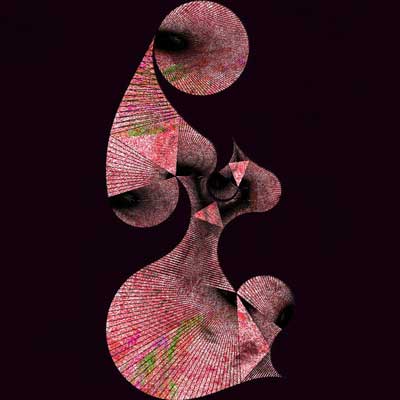
This thesis engages with deconstruction – a philosophical method formulated by Jacques Derrida – to determine the extent to which deconstruction can make positive claims about the nature of justice in the context of legal studies. According to Derrida, texts never ultimately refer to fixed, stable meanings, because signs are always understood in relation to other signs, such that there is a constant slippage and deferral of sense. Insofar as laws are textual, therefore, they will always be deconstructible. But the implementation of justice depends upon the inscription of institutionalized protections of rights and principles within the law. Justice requires laws, but laws are always deconstructible. I thus argue that deconstruction cannot provide positive guidance in the formulations of specific laws; nevertheless, deconstruction reveals the inevitable violence within the institution of law, and serves a positive goal via a negative path – namely, deconstruction calls for the reduction of violence to its minimum.
The Possibility of an Unbiased Judiciary: Liberty as Guiding Principle
By Fernando Porras

In Federalist 78, Alexander Hamilton insisted on the need to shelter jurisprudence from political bias in the Supreme Court.. My thesis weighs the merits of two competing theories of jurisprudence: the originalism of Justice Antonin Scalia and the legal realism of Justice Oliver Wendell Holmes. I argue that both originalism and realism fail to provide us with a guiding principle for adjudicating conflicting interpretations of the Constitution. Realism capitulates to the overt political bias of individual justices and originalism covertly masks political bias. I turn to the jurisprudence of Justice Stephen Breyer for a formulation of liberty as the unbiased guiding principle for adjudicating conflicting interpretations.
Gentrification and Corporate Social Responsibility: An Examination of Technology Corporations as Moral Persons
By Winnie Wang
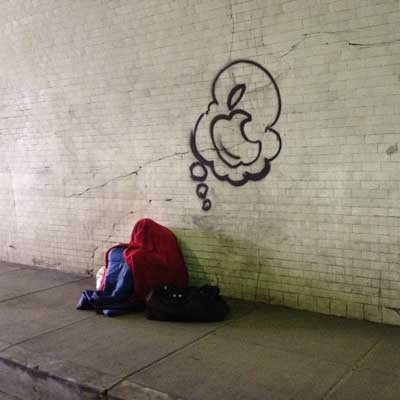
Gentrification, displacement and homelessness in large metropolitan areas such as the San Francisco Bay Area have been intensified by the increased presence of large technology corporations. This has led to rapid increases in population, housing shortages and a rising homeless population, all of which raise difficult ethical questions about corporate moral responsibility. This thesis examines and extends Peter French’s argument that corporations should be considered moral persons. By drawing on French’s theory that corporations possess ‘Corporate Internal Decision Structures’ (CID), I argue that corporations possess intentionality and responsibility by virtue of such structures that ground a shared accountability for the gentrification and homelessness they create. I address philosophical questions that arise in ascribing such moral personhood to corporations and contend that corporate moral personhood reflects a different kind of personhood than biological persons possess, one which argues for even greater moral accountability.